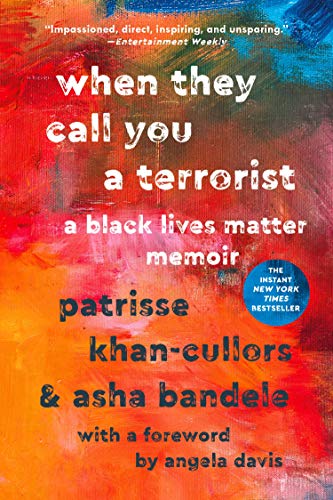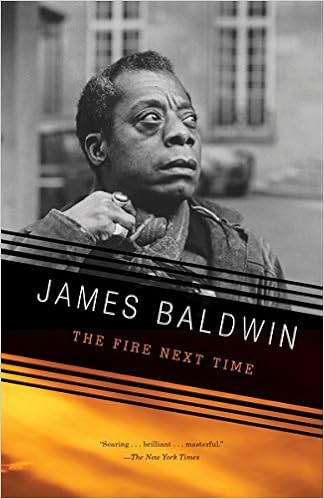14 Best Books about Racism and Social Issues – African American Non-fiction Books
Unless you live in a cave far from civilization, you are probably aware of the Black Lives Matter movement last year. There are certain situations where African American people are discriminated against and face humiliation or abuses. But the problem lies much deeper: we need equality; we need honesty
Black Lives Matter movement isn't new, it didn't start last year! It is first mentioned in July 2013 after the death of 17-year-old Trayvon Martin. Sofar nothing changed, with the death of George Floyd in 2020 the protests renewed nationwide. The goal is to reveal the ultimate issues: inequality, harassment, and racism.
In fact, skin color should not even be discussed or be an issue anymore, but in reality: it is. America is divided and not just from a political point of view.
In the following list we intend to open up this social issue in depths. All the aspects we need to face, and ultimately we need to cope with discrimination, inequality, racism, and social gap. We would like to believe that the future could be brighter, but we need to take the necessary steps ahead of us.
We are celebrating Black History Month, for this occasion we tried to add historical perspective to these topics, in order to get broader perspective.

Race and Slavery in the Contemporary World: Reflections, by Patricia Yunghanns
This is a philosophical book of reflections, from a gifted African-American author Patricia Yunghanns.
The author collected several arguments that slavery didn't end with the Emancipation laws, and Yunghanns also shows the hidden symptoms of it for the readers. The political regime is still interested in keeping races separated. The fact that inequality skyrocketed in the last decade substantiates the author's core opinion. Black workers who are working for a wage need to face the fact that they couldn't raise their wealth significantly in their lifetime.
The author digs deep into history in order to uncover the questionable intent of laws and authority. Yunghanns uses Rousseau’s view on slavery, where everybody is born free, but quickly chained by an authority or by a group of leaders. The basis of being part of any system is the agreement of participation. The individuals agree to be equal parts of a democratic system, but the US made changes to this core idea of Rousseau.
The political regime restricts how we live; they may form laws that aren't in harmony with the spirit of the Constitution. The government creates procedures for people to follow and the government considers itself as acting lawfully. However, our Founding Fathers created extra Laws that government must follow. Yet, this doesn't really happen nowadays. Just read the Ninth Amendment.
The author's book is a real work of legal research, it's a great read if you would like to understand the core problems behind our laws and the remaining symptoms of slavery.

Evil Aliens With Afros, by Daniel Joseph
Author Daniel Joseph underlines the systematic racism trend in the modern society. Maybe this is one of the best short book about racism. There is an obvious gap between white and black people. He describes in his work some of his experiences as a teenager and exposes effects of racism through his own lifestyle. At the same time, he tries to help those who struggle in the exact same situation by teaching them the lessons he learned the hard way during his youth. Moreover, the author showcases how to fight for racial equality the right way.

Between The World And Me, by Ta-Nehisi Coates
Between The World And Me is an emotional book on racism. It does not teach you how to fight racism, but it will bring in some hard thoughts and rough emotions. The book is basically written as a long letter. The author writes some words for his teenage son. He talks about the hassle, experiences, symbolism and feelings he has gone through as a black person in the USA. He shares some of the lessons he has learned as well.

Me And White Supremacy, by Layla Saad
Me And White Supremacy has been released prior to the recent protests, but it came out at the perfect time. The book is structured as a guide. It extends over 28 days and it is aimed at white people. The book tries to help them understand the struggle black people go through. White privileges and white supremacy issues are still present, even if they are not always visible or talked about. Unfortunately, black people experience them on a daily basis.

The New Jim Crow, by Michelle Alexander
Colorblindness is not a good thing from a medical point of view, but it is the way of life when it comes to skin color. The election of Barack Obama underlined the beginning of a new age of colorblindness in the USA. However, it did not end racial discrimination. Instead, it redesigned it. The judicial system still targets more black people than white people, meaning colorblindness is far from being part of the modern society.

The Color Of Law, Richard Rothstein
This is one of the best “Black Lives Matter” books and short books to get educated about discrimination. It shows how various governments have actually promoted neighborhood segregation. It may not be so obvious because racial zoning is often disguised. The book goes a bit farther and underlines how builders create white only suburbs, not to mention tax exemptions for certain companies enforcing segregation. The book is a study that will most likely open your eyes.

Biased, by Jennifer Eberhardt
How do you define bias? Does bias affect racial inequities? Do governmental institutions actually try to combat these inequities? Do people have a role too? Based on science and investigations, Jennifer Eberhardt's book exposes racial bias that targets all kinds of societies. From schools and the legal system to neighborhoods and workplaces, racial inequities are everywhere. The good news is there are ways to overcome the issue. The author gives advice and findings from her research to primary understand how bias works and how blind it is.

Why I'm No Longer Talking To White People About Race, by Reni Eddo-Lodge
Reni Eddo-Lodge's book digs into the source of racial feelings in black people. The black history is now eradicated, but some of the issues persist. There is a visible gap in class based on race and the author aims to reveal it, but also to discover a few ways to fight racism. The book is basically an exploration of what it feels like to be black in the UK these days. It is suitable for both black people who try to figure a way out of racial abuse and white people who need to understand what racism means.

Discrimination And Disparities, by Thomas Sowell
Discrimination And Disparities analyzes more issues responsible for the gap between different classes, countries and groups. Some of these issues include the fortune, while hard work is not to be overlooked either. Some of the less fortunate individuals are the victims of the more fortunate ones. Discrimination is also among the most common factors related to disparities between classes. Each of these things is thoroughly analyzed.

When They Call You a Terrorist, by Patrisse Khan-Cullors and Asha Bandele
This is a stunning memoir on how to be treated unfairly. The author and also the founder of BLM movement recalls the shame she felt as a kid for her silence in the face of racial injustice. In this non-linear narrative memoir the author show her path to be a leader of Black Lives Matter movement after 2013. Khan-Cullors expose the brutality and racial profiling of police system, that she had to face in her life. She wanted to show a first hand account how injustice looks like.

The Fire Next Time, by James Baldwin
This book is a classic. It consists of two different parts. They are written as letters. The book describes the author's youth years in Harlem, in a time when everyone around the area was condemned to have a hard life, especially with the racial injustice around. The book was a plea to end racism in the USA. It came out in 1963 and it became a bestseller. While things have definitely changed a lot since then, there is still racial injustice out there. Luckily, there are ways to combat it.
With the words of the author:
If we—and I mean the relatively conscious whites and the relatively conscious black, who must, like lovers, insist on, or create, the consciousness of others—do not falter in our duty now, we may be able, handful that we are, to end the racial nightmare, and achieve our country, and change the history of the world.

Begin Again, by Eddie S. Glaude Jr.
This book can be described in a few different ways. It is a manifest against Donald Trump, as well as a request to achieve something by supporting the Black Lives Matter movement. For the author, these times are similar to the times of the civil rights movement. Obviously, times have changed and there are different conditions, but at the end of the day, the change is still far from over.

Antiracist Baby, by Ibram X. Kendi
The author is deeply empathic and he certainly sensitive for this topic as the director of the Antiracism Research and Policy Center. He also authored other non-fiction book in this topic, but this is his first children's book, illustrated by Ashley Lukashevsky.
The author emphasizes that we all need to be part of the solution, it isn't enough to understand the problem here. We need to form how we look at the world and how we see each other.
The Antiracist Baby is a lovely book for kids. The picture book educates youngsters to open their eyes for diversity. People are born to be unite but policies may separate them. The book uses a voice that we can speak about racism as a problem and suggests solutions for all of us. The book was also finalist in Goodreads Choice Awards 2020 competition.
Another non-fiction book by the author for adults:

How to Be an Antiracist, by Ibram X. Kendi
In a sense the core take away of the book matches with the children's book, but it's presented in a much more detailed, somewhere analytical style.
Final words
Watching the countries standing up against racism makes this a global phenomenon. In South Africa, where in April 2020, Collins Khoza was killed by security forces reveals that we only understand the very surface of the problems and maybe in other countries the situation is worse, or at least less discovered. In South Africa there wasn't any impact of this case, no outrage, no government statement or any demanding accountability. So is it really global?
The power of online communication and media make these cases discoverable, but the impact is still low, no real solidarity in countries outside the US. In other words, we couldn't help these people globally. So when we are speaking about a global movement against racism, we are still wrong. We (people) aren't strong enough to step up against global issues. Only political and global organizational bodies are able to make effective steps.
Many people globally see support for antiracism as an act of charity or goodwill towards African Americans communities. Perhaps another obstacle to international solidarity is the reality that while the fusion of online media and social justice has become more prevailing, we still heavily rely on US narratives, where the emotional impact of a tragedy is more engaging than the social problem itself. So to say, we don't want to dig really deeper.
These were the best books about racism according to our opinion. Bottom line, the above social issues and historical background reveal some very honest perspective of the current situation in the United States. It's really important to all around the world to find out more about what black people go through and what they are fighting for. We need to discover ways to motivate ourselves and fight against racism locally, because it isn't just the problem of America. It's the problem of our society. There is a heavy dose of truth and motivation in the above books, we need to gain ideas for what kind of society we want to live in during the next century.
An unbiased truly equal one, where people could work and treated equally without any consideration of their skins' color.
My profession is online marketing and development (10+ years experience), check my latest mobile app called Upcoming or my Chrome extensions for ChatGPT. But my real passion is reading books both fiction and non-fiction. I have several favorite authors like James Redfield or Daniel Keyes. If I read a book I always want to find the best part of it, every book has its unique value.







